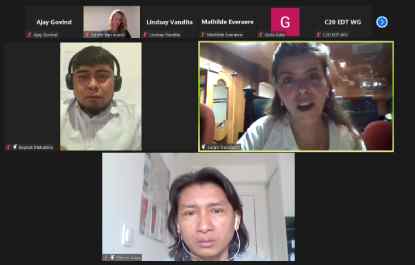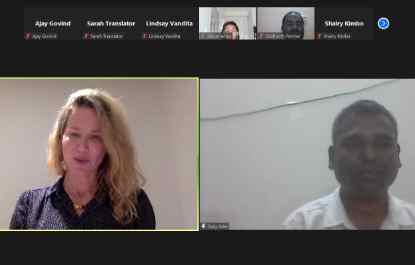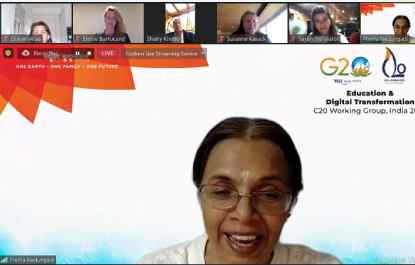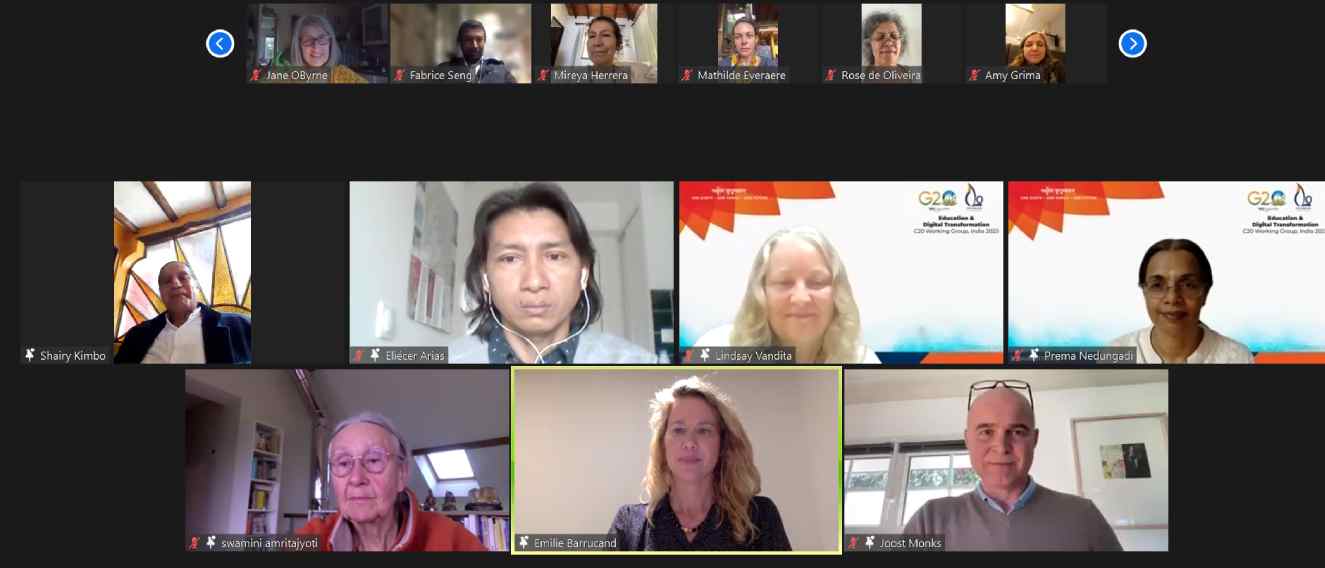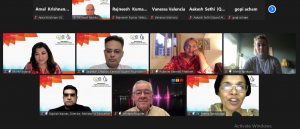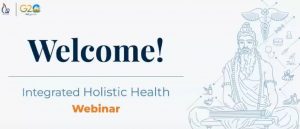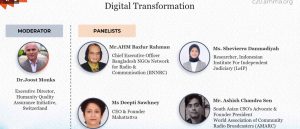The Policy Dialogue on Indigenous Knowledge and Education event organized by the Education and Digital Transformation working group brought together leaders representing indigenous communities, highlighting the importance of indigenous knowledge and education. The six distinguished speakers representing different indigenous communities spoke in three languages: Spanish, Portuguese, and Hindi, with live English translation. 118 participants representing 13 countries attended the virtual event.
C20 Education and Digital Transformation Coordinator Dr. Prema Nedungadi, Director, Amrita CREATE, and Chairperson, School of Computing, Amritapuri, Amrita University, said the university runs the Live-in-Labs program. Students and faculty members visit rural villages and indigenous communities. They work collaboratively with them to find solutions to various challenges they face problems.
The session’s moderator Emilie Barrucand is an Anthropologist and an expert in positive impacts on man and nature, with over 22 years of experience working with indigenous peoples living in the Amazon and the Atlantic Forest in Brazil to protect their cultural heritage and languages and defend their rights. She’s the Founder and Director of the French NGO Wayanga.
Lindsey Vandita supports Amazon communities in Ecuador through her project Sacha Spirit (Spirit of the Forest) and Amazon Action, linking communities to other organizations that can help. According to her, indigenous communities are still caught in a post-colonial paradigm. The solutions proposed include training professionals from the indigenous communities, providing meals to children, and gaining financial support to improve classrooms with IT support.
Golu Singh Skel represents the Bhilala (Bhil) community in Madhya Pradesh. He serves as the State Coordinator in Parivaar. Golu highlighted best practices at Parivaar, which runs Centres of Supplementary Education and provides meals to students twice daily. The centers run before and after school hours and currently serve over 681 villages in 15 Madhya Pradesh, India districts. They reach 50 thousand children between the age group 3 to 14 years, and 50 percent are girls. Critical challenges outlined were attendance, capacity building, and limited language resources for indigenous communities.
Golu spoke about Parivaar’s Kutir community-based project, based on community ownership. Community members take on the roles of teachers and kitchen staff. From a policy perspective, he said that it is crucial to recognize tribal languages as a language since many are endangered, create a repository of indigenous knowledge, and create community spaces for indigenous community-led groups.
Beptuk Metukrire, a young Kayapo leader, leads the Raoni Institute team in Brazil. He highlighted that his community’s central concern is forest preservation. The community believes in exercising its constitutional right to protect and save the forest. Although they understand the need for technology, they want to protect the forest. They are ready to fight against unjustified encroachment of forests and contest the Government’s development plans when it is at the cost of the environment.
Eliecer Arias is an indigenous leader of the Kankuamo people of the Sierra Nevada de Santa Marta, Colombia. As a human rights defender and environmentalist, he is a member of the National Movement of Victims (MOVICE), a movement to accompany and advise relatives of victims of the crime of forced disappearance and extrajudicial executions in the town of Kankuamo. He said, “Environmentalists by nature, like all indigenous peoples, do not see the territory as an opportunity to exploit its resources.” His recommendations were security of territories, education of displaced indigenous students, and environmental protection to be added to the curriculum.
Shairy Jose Quimbo is an elder and indigenous educator from Otava and a presenter of Shungunijuy, Ecuador. His policy recommendations drawing from Corazonar’s pedagogy included the need to cultivate holistic beings through education by awakening the thirteen intelligences, developing resilient hearts and healing childhood traumas, and working towards creating awareness of co-creative beings.
